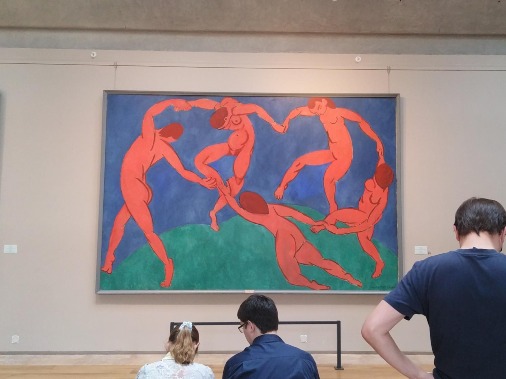티스토리 뷰
갈레아노의 '불의 기억'을 읽고 있다. 갈레아노의 재치 있으면서도 정곡을 찌르는 수사법에 감탄하며 읽고 있다.
그의 인터뷰 기사중 흥미로운 부분을 발췌해본다.. 동시대 남미 거장 작가 중 하나인 보르헤스에 대한 평가가 인상적이다. 굵은 글씨는 질문. 밑줄은 내가 인용하면서 강조를 위해 친 부분.
If a writer has political commitments, how does he express himself artistically without falling into a propagandistic mode?
I don't see myself as a "writer with political commitments." I am a writer trying to get inside the mysteries of life and the secrets of society, the hidden zones, the obscured zones -- because reality is masked. My political engagements and my work as a writer are one in the same. I don't, therefore, have to confront the problem of propaganda. Generally, propaganda is not efficient. It belongs to an instant. That's okay. But it's not art. In some cases, there are works of art that function as propaganda but later go on living. Casablanca was a propaganda film. The films by Eisenstein were propaganda, made during the Stalinist period, and they are beautiful, great works of art. So propaganda is not always ephemeral, but usually it is. As you can see, I don't believe in schematic formulations. Reality is very complex.
So Jean-Paul Sartre, to cite one possible example, was wrong to believe that writers have an obligation to behave in a certain way?
I don't think writers should be political. I think writers should be honest, honest in what they are doing. They shouldn't sell themselves. They shouldn't allow themselves to be bought. They should respect themselves. They should keep their dignity, as human beings and as professional writers. They should say what they want to say. The words have to be genuine, and they have to come from the heart, otherwise they're artificial. When you give the order to be political, it's a disaster. The so-called "socialist realism" is the result. It's as disastrous as "capitalist realism.
Borges, on the other hand, has never had a special place in my heart. I don't feel the electricity of life in his work. I admire his style, his skill, his craftmanship. He was an intellectual, a man with only a head. No heart, no sex, no stomach -- just a head. A brilliant, super-smart head. But he was elitist, racist, very reactionary. He paid homage to military dictators like General Videla in Argentina and Pinochet in Chile. I don't feel close to him. He was un escritor sentado -- a seated writer, an intellectal in the library. Neruda was engaged with the world in a different way. In his poems, we see the celebration of life, of fruit, of the sea, of love.
(...) When underdeveloped countries are called "developing" countries, it's a way of saying they are like children -- growing, developing. And it's a lie. They are underdeveloped because more powerful countries are growing at their expense. Third World underdevelopment is a consequence of First World development, and not a stage toward it. That was the main argument of Open Veins.
출처 : http://m.theatlantic.com/past/docs/unbound/interviews/ba2000-11-30.htm
- Total
- Today
- Yesterday
- St. Vincent
- ta det lugnt
- 세인트 빈센트
- 오페라
- the rest is noise
- ShiinaRingo
- 현대음악
- R.I.P.
- 2005 pitchfork singles
- 지산밸리페스티벌
- 내한
- In Retrospect
- 도쿄지헨
- 잡설
- alex ross
- 동경사변
- Fleet Foxes
- 줄리아 홀터
- 신스팝
- 바그너
- 밥 실러
- arcade fire
- Tokyojihen
- 지산 후기
- 던젠
- 지산락페
- 언론 비판
- chanson
- 피케티 자본
- 독서리스트
| 일 | 월 | 화 | 수 | 목 | 금 | 토 |
|---|---|---|---|---|---|---|
| 1 | 2 | 3 | 4 | 5 | 6 | 7 |
| 8 | 9 | 10 | 11 | 12 | 13 | 14 |
| 15 | 16 | 17 | 18 | 19 | 20 | 21 |
| 22 | 23 | 24 | 25 | 26 | 27 | 28 |
| 29 | 30 |
